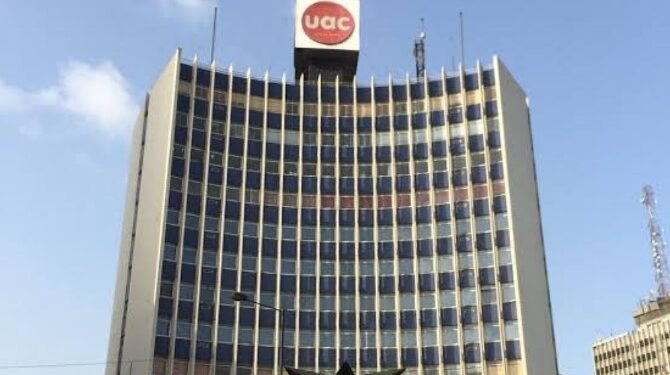

UAC increases prices amid inflation crisis
By Esther Agbo
In response to Nigeria’s persistent inflationary pressures, United African Company (UAC) has raised its product prices by 75 percent to 100 percent, a move aimed at protecting its profit margins, according to the company’s Group Managing Director, Fola Aiyesimoju.
The announcement came during an investor call reviewing the company’s financial performance for the first half of 2024.
Aiyesimoju emphasised that while the price hikes are necessary, they differ across product categories.
“The short answer across the board as you know we have so many products across different categories would be between 75 per cent to 100 per cent on average but it varies quite meaningfully the way you go about it say this product has increased by 75 percent to 100 percent,” he noted.
Despite the challenges posed by surging inflation, UAC posted an impressive financial performance for H1 2024.
The company reported a pre-tax profit of N15 billion, a staggering 373 per cent increase from N3.16 billion during the same period in 2023. Revenue also surged, reaching N83.3 billion, a 57.5 per cent year-on-year growth from N52.9 billion in H1 2023.
The company’s second-quarter results reflected similar growth, with revenues climbing 51 per percent from the N28.3 billion reported in Q2 2023 to N42.7 billion.
UAC’s broad portfolio of subsidiaries, including Grand Cereal Limited, UAC Foods, and CAP Plc, alongside its stakes in UPDC Plc and MDS Logistics, has helped the company maintain a diversified revenue stream during these volatile economic times.
Together, UPDC and MDS Logistics generated a net profit of N1.18 billion in H1 2024, of which UAC’s share amounted to N475.4 million.
UAC’s decision to increase prices is part of a broader trend in Nigeria’s consumer goods market, which has been grappling with the impact of inflation. Over the past year, inflation has soared to a 28-year high, with food inflation reaching 40 per cent by June 2024.
This has significantly affected consumer purchasing power, leading to a 17.4 percent drop in transaction volumes within the Fast-Moving Consumer Goods (FMCG) sector, as highlighted by a NielsenIQ report.
To cushion the effects of inflation on the broader economy, the Nigerian government has rolled out various social intervention initiatives, including cash transfers and low-interest loans for businesses and grants to support MSMEs and other sectors.
However, these measures have not fully offset the challenges faced by consumer goods companies like UAC, which are forced to raise prices to safeguard profitability.




